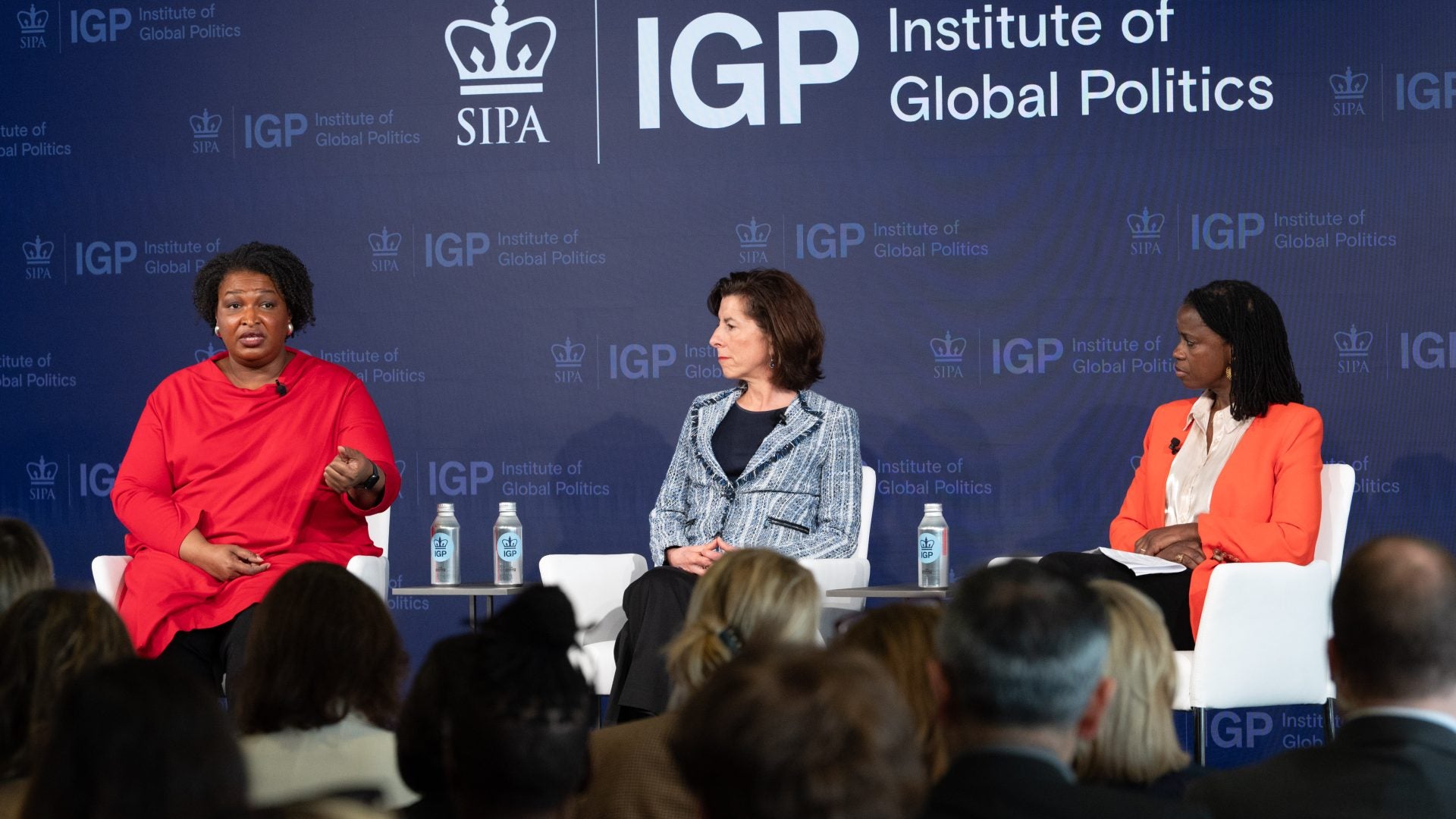
Stacey Abrams helped launched a new Women’s Initiative at Columbia University’s Institute of Global Politics (IGP) last week, focusing on economically empower women and girls.
Per the press release, “The Institute of Global Politics’ Women’s Initiative will produce high-quality, actionable research and policy proposals across four pillars: women’s economic opportunity; women’s health; women’s safety and security; and women’s leadership, democracy, and human rights.”
The Initiative will pair IGP’s Distinguished Fellows with Columbia faculty members based off their areas of research. The goal: “to produce actionable policy recommendations at the state, federal, and international levels; and bring together a variety of experts on gender policy to share best practices, forge partnerships, and offer trainings to SIPA students and affiliates.”
ESSENCE had a chance to sit down with Abrams, who is an inaugural IGP Fellow, to discuss the Women’s Initiative, her work in the digital equity space, and how we can help ensure that women and girls around the globe become economically secure.
“When Secretary Clinton and the Dean decided to launch not only the fellowship, but the Women’s Initiative, there was no question in my mind that I wanted to be a part of it,” Abrams said.
In fact, Abrams is no stranger to the digital equity space. During her tenure in the Georgia State Legislature, as the Minority Leader, Abrams spearheaded an effort to defeat a bill that had the potential to limit access to broadband. “That to me was the beginning of the conversation of how do we not only think about the needs of rural communities who are perennially left out of opportunities, but how do we adjust for the very real consequences in the 21st century for not having access to what is now it’s an essential utility, whether we’re talking about telehealth, or education, or being able to start and run your business or simply getting information.”
“Georgia still has an incredible gap in access, and it’s incredibly persistent, particularly for rural communities of color,” continued Abrams. “Then on the international side, I’m looking at the importance of digital equity because in countries like Kenya, you have a fairly strong proliferation of mobile devices. But the question becomes one of who can afford them, do they have the skills and the training and not only access those devices, and translate those into economic empowerment?”
“When asked about what an economy that focused on meeting the economic needs of women and girls would look like in an ideal world, Abrams noted that “part of the launch of the Women’s Initiative, which is embedded in IGP, is exactly that question. We know that when women and girls are lifted up, everyone rises with them. We are working together as fellows and within this Initiative to think about how women are not only uniquely and disproportionately impacted by our global challenges, they are almost entirely the solution to several of the challenges we face.”
“Digital equity, both here in the U.S. and abroad, is a critically important issue for women and people of color, which means for women of color, it is often the question of life and death,” Abrams shared. “The urgency of this moment is not lost on me. What is being done through the Women’s Initiative, what is been convened by IGP is an opportunity to bring new voices and bring an array of leaders together and not simply have us come together and bemoan what is happening or even articulate the problem. What is exciting about this and why I’m so eager to be a part of it is that our task is solution.”
“We are supposed to find solutions, leveraging the scholarship of this institution, leveraging partnerships with other organizations, including ones that we’ve been a part of, and we are bringing our own lived experience,” stated Abrams. “For me, this is one more opportunity to imagine a better outcome, and I’m excited and grateful to IGP for helping make this happen.”